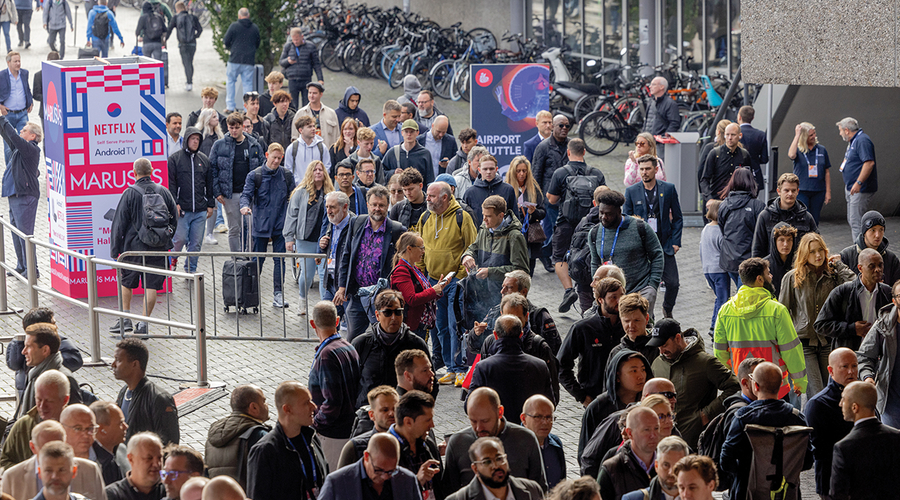Artificial intelligence aside, there was also huge relief at IBC that the industry is on the up. James Bennett reports
Is your IP up to scratch? Can your 5g handle OB? Where do you stand on SMPTE 2110? We may never know the answers because host Nadine Dereza banned jargon and acronyms at an IBC Review event in London last month.
The event, run by RTS London and the Institution of Engineering and Technology (IET), is held annually to condense the vast flow of information from 45,000 attendees (2,000 up on last year) at September’s International Broadcasting Convention in Amsterdam into takeaways for the UK market.
Delivering those takeaways, along with four experts at the IET in Savoy Place, broadcaster and journalist Dereza pleaded: “Don’t get bogged down in acronyms. There are many people who are not in the know.”
One acronym on all lips is AI, reinforced by this year’s punning IBC Review title: “What caught our AI?” An hour of discussion followed before one questioner from the audience pointed out that, actually, artificial intelligence per se had barely been touched on.
Panellists took the point, agreeing that AI is a means rather than an end, and the challenge now is to integrate it into pragmatic solutions. While hailing a “vibrant and dynamic” IBC and welcoming AI advances such as automated video editing, audio separation and content provenance tracking, Mark Smith, Chair of the IBC Council, conceded that hyped buzzwords can swiftly fall out of fashion. “Who’s talking about the metaverse these days?” he asked.
Jenny Priestley, Content Director of TVB Europe, said she arrived at IBC expecting AI to be the dominant theme but saw a different answer emerge when asking everyone she met to sum up the show in one word: “The biggest word was ‘busy’, which was wonderful because for the last couple of years everybody’s been getting back on their feet, and now [everyone] is ready to start engaging again.”
Another key word was “latency” – the lower, the better. Reduced time-lags can’t come soon enough for Liverpool supporter Priestley. “I watch everything via smart TV, and I’ll be watching the match, then I’ll get a smiley-face text from my sister, who’s seeing it on a traditional broadcast. Two minutes later, I’ll finally find out why!”
Yet panellists all stressed the caution broadcasters must exercise before relying on exciting but unproven technology because the stakes are so high. “What happens if Strictly goes down on a Saturday night?” asked Priestley.
Flick Webster, Marketing Manager at BT Media and Broadcast, had low-latency solutions to offer… and a Scalextric track at IBC to prove it. “We had the track set up with cameras trained on it and all the encoding equipment on the stand. We were able to take the live feeds, encode them, send it across our network back to our switch at BT Tower and then display it back on the screen. And it was, as far as the eye could see, real-time.”
Russell Trafford-Jones, Chair of the IET Media Technical Network, spoke about the trend, now fully apparent at IBC, to replace green screens with LED screens. “Now everyone can see what should be there,” he said. “It’s a very compelling technology.”
A core pillar of IBC is fostering young talent. “Are we doing enough?” asked Dereza. In reply, Smith cited the RTS’s new Mini MBA in Television and Streaming Media, which was launched at IBC. “I think it’s brilliant,” he said.
The final key word was “collaboration”. Smith said: “Broadcasters want a more modular approach – to buy their graphics from here, their vision mixing there, different components somewhere else. It’s about inter-operability.” Webster agreed, championing a “pick-and-mix” approach to work with the “best of breed” and tap into a “big melting pot of ideas”.
‘IBC Review 2024’ was held at the IET on 9 October and was produced by Terry Marsh.




